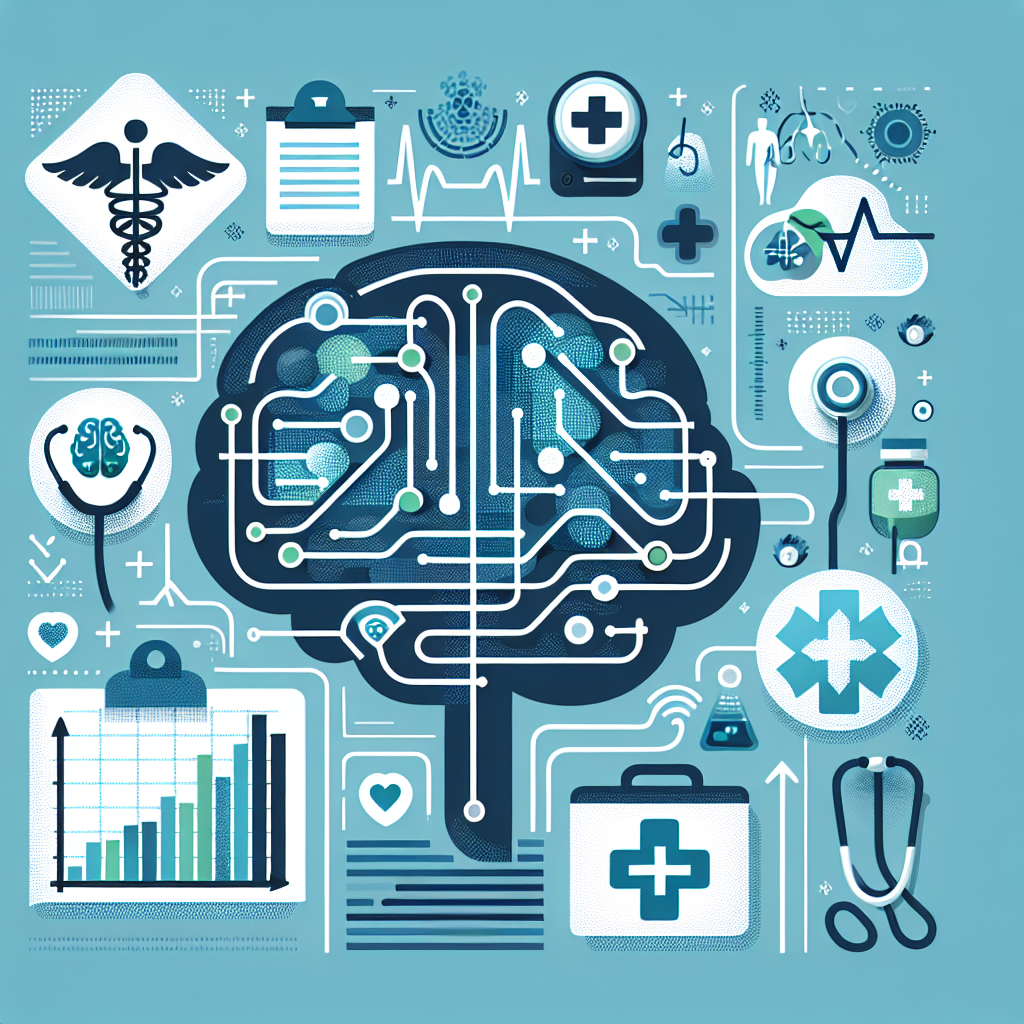AI in Healthcare: Enhancing Patient Outcomes
Artificial Intelligence (AI) has made significant advancements in various industries, including healthcare. AI has the potential to revolutionize the way healthcare is delivered, improving patient outcomes, reducing costs, and increasing efficiency. From diagnosing diseases to personalized treatment plans, AI is transforming the healthcare industry.
AI in healthcare involves the use of algorithms and machine learning techniques to analyze complex medical data and provide insights that can help healthcare providers make more informed decisions. This technology has the ability to process vast amounts of data quickly and accurately, which can lead to improved patient outcomes.
One of the key areas where AI is making a significant impact is in disease diagnosis. AI algorithms can analyze medical images, such as X-rays and MRIs, to detect abnormalities that may be missed by human radiologists. This can lead to faster and more accurate diagnoses, allowing patients to receive treatment sooner and improving their chances of recovery.
In addition to diagnosis, AI is also being used to personalize treatment plans for patients. By analyzing data from electronic health records, genetic information, and other sources, AI algorithms can help healthcare providers determine the most effective treatment options for individual patients. This personalized approach can lead to better outcomes and reduced side effects for patients.
Another area where AI is making a difference is in predicting patient outcomes. By analyzing patient data and trends, AI algorithms can help healthcare providers identify patients who are at risk for certain conditions or complications. This early intervention can help prevent adverse outcomes and improve patient outcomes.
AI is also being used to improve the efficiency of healthcare operations. By automating tasks such as scheduling appointments, processing insurance claims, and managing inventory, AI can help healthcare providers save time and resources, allowing them to focus more on patient care.
Despite the many benefits of AI in healthcare, there are also challenges and concerns that need to be addressed. One of the main concerns is the potential for bias in AI algorithms. If the data used to train AI algorithms is not representative of the population, the algorithms may produce biased results. This can lead to disparities in healthcare outcomes for certain groups of patients.
Another challenge is the need for transparency and accountability in AI systems. Healthcare providers need to understand how AI algorithms make decisions in order to trust and rely on them. Additionally, there is a need for regulations and standards to ensure the ethical use of AI in healthcare.
Overall, AI has the potential to revolutionize healthcare and improve patient outcomes. By harnessing the power of AI technology, healthcare providers can deliver more personalized, efficient, and effective care to their patients.
FAQs
Q: How is AI being used in healthcare?
A: AI is being used in healthcare to improve disease diagnosis, personalize treatment plans, predict patient outcomes, and enhance the efficiency of healthcare operations.
Q: What are some of the benefits of AI in healthcare?
A: Some of the benefits of AI in healthcare include faster and more accurate diagnoses, personalized treatment plans, improved patient outcomes, and increased efficiency.
Q: What are some of the challenges of AI in healthcare?
A: Some of the challenges of AI in healthcare include bias in AI algorithms, lack of transparency and accountability, and the need for regulations and standards to ensure ethical use.
Q: How can healthcare providers overcome the challenges of AI in healthcare?
A: Healthcare providers can overcome the challenges of AI in healthcare by ensuring that the data used to train AI algorithms is representative of the population, promoting transparency and accountability in AI systems, and adhering to regulations and standards for ethical use.
Q: What is the future of AI in healthcare?
A: The future of AI in healthcare is promising, with continued advancements in technology and the potential for AI to revolutionize the way healthcare is delivered, ultimately improving patient outcomes.

